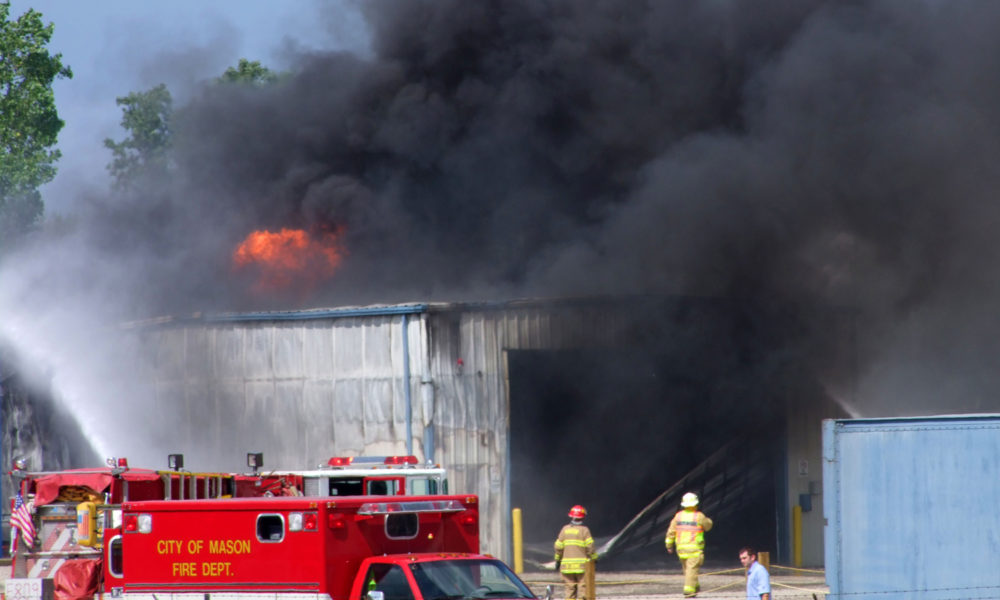We think it can. We think it can. We think it can.
That’s why UCS joined Earthjustice, United Steelworkers, National Council for Occupational Safety and Health (COSH) and 19 additional organizations last week to send a letter advocating for reforms to the Chemical Safety and Hazards Investigation Board (CSB) that would ensure the agency is doing everything in its power to prevent chemical disasters and protect the lives of workers and communities living near hazardous facilities.
Many people are aware that the Environmental Protection Agency (EPA) and Occupational Safety and Health Administration (OSHA) have a statutory responsibility to protect the health of workers and the general public from chemical hazards, but the small and potentially mighty CSB is an independent federal agency that could also be doing more to hold industry accountable and keep the rest of us safe.
What is the CSB and why does It matter?
The CSB is an independent agency authorized by the amendments to the Clean Air Act in 1990 and established in 1998 as an added layer of accountability to provide independent technical capacity to investigate chemical incidents. The CSB’s investigations have been critical for understanding why incidents happen and ensuring protections are put in place to prevent similar events from occurring in the future. While its authority to enforce those recommendations is limited, it does have power to compel timely data submission and advocate for its suggestions to be taken up by industry, trade associations, labor unions, and regulatory agencies. As an example, in 2020, the CSB issued its Accidental Release Reporting Rule which requires chemical facility owners experiencing an accidental release resulting in injury, death, or property damage to issue a report to the agency within 8 hours of the event.
The CSB also has an important statutory responsibility to provide recommendations to the Environmental Protection Agency and the Department of Labor on regulations or other action needed to prevent chemical disasters.For example, in 2018, the CSB weighed in on the Trump administration’s proposed rule to rollback the Obama administration’s amendments to the Risk Management Plan rule (also known as the Chemical Disaster Rule), which acknowledged the need for stronger rather than weaker safeguards to protect Americans from chemical disasters.
What reforms are needed at the CSB?
The letter we submitted lays out a list of over twenty recommendations for CSB improvements, some of which would help address longstanding gaps and others that would help fix problems that arose under the Trump administration. Some of the priority recommendations include:
- Comply with President Biden’s Executive Order 13985, including consulting with members of communities that have been historically underrepresented in the Federal Government and underserved by, or subject to discrimination in, Federal policies and programs.
Communities around facilities that experience incidents investigated by CSB are disproportionately people of color and low-income, and are often exposed to multiple health hazards with cumulative short and long term impacts. These communities deserve to be appropriately involved in investigations and especially in fully understanding results and proposed recommendations before those are finalized. Pathways should be developed for their more meaningful involvement in CSB incident conclusions and recommendations since they have invaluable information, knowledge, and perspectives to provide.
- Issue an accounting of the current investigative backlog and a plan explaining how CSB will complete each open site investigation, with a target date for issuing final reports and recommendations. Post the plan on the CSB website and update it periodically.
CSB currently has a backlog of 19 open investigations, some of which go all the way back to events that occurred in 2016. This large backlog is concerning. Based on information on the website and in the Board’s public meetings, it’s not clear what the timeline is for moving these forward. It is imperative that the cases are addressed thoroughly but also quickly and that to the extent possible, updates about the status of open cases and timeline for completion can be shared publicly.
- Designate meaningful reform of EPA’s RMP rule and OSHA’s Process Safety Management of Highly Hazardous Chemicals (PSM) standard PSM as CSB’s top advocacy priorities and allocate staff resources towards this end.
In order to protect workers and communities from future dangerous chemical release incidents, the CSB must prioritize process safety improvements in collaboration with EPA and OSHA. It should fulfill its consultation responsibility by conferring with EPA to share the newest information with the agency to show why it should restore and strengthen the Chemical Disaster Rule – especially climate-related prevention and safety measures to protect communities and workers from the double impacts of chemical disasters and extreme weather. A new UCS, Earthjustice, and Center for Progressive Reform analysis on RMP facilities at risk of extreme weather events shows just how urgent this issue is.
- Restore opportunities for public comments and questions during allCSB public meetings, including quarterly business meetings and meetings discussing specific investigations.
Communities, workers, and the public should have the information they need to make decisions about their health and should also have opportunities in public meetings to share information with the CSB. Providing ample advance notice of CSB’s public meetings, offering opportunities for public comments at those meetings, and making all meeting documents available on its website will help serve the public’s interest in these matters.
- Issue a staff recruitment, training, and retention plan and post it on the CSB website; Request “direct hiring authority” and/or other measures from the US Office of Personnel Management to help accelerate staff recruitment and hiring.
UCS tracked the decline of federal science capacity across agencies under the Trump administration, finding that certain agencies, like EPA, have lost hundreds of scientists. CSB’s loss of internal capacity follows this trend. According to a 2020 Congressional oversight letter, CSB now has 12 (or even fewer) staff members dedicated to investigations, down roughly nine staff from earlier periods. The CSB’s 2019 Federal Employment Viewpoint Survey found that nearly 50% of the employees surveyed believed that CSB was unable to recruit staff with the right skills. The agency needs qualified staff to conduct mission-critical work that will help protect workers and community members and must do everything in its power to increase its capacity.[AC1]
- The CSB should establish and enforce a scientific integrity policy that safeguards against improper political interference in the conduct of scientific research and in the collection of scientific or technological data, and that prevents the suppression or distortion of scientific or technological findings, data, information, conclusions, or technical results.
Despite the fact that the CSB relies heavily on the use of science to inform its investigations and decisions regarding severe industrial chemical accidents and employs several scientific experts including mechanical and chemical engineers, industrial safety experts and investigators, the agency doesn’t have a formal scientific integrity policy in place to guard against political interference. The board currently follows guidelines for “ensuring and maximizing the quality, objectivity, utility, and integrity of disseminated information,” it’s unclear how well these guidelines are enforced. Because the CSB is charged with investigating severe industrial accidents that often involve injuries, fatalities, and destruction costing millions of dollars, it should work to maintain integrity in its science-based investigations and decisions for the public good.
CSB has a role to play in the Biden-Harris Administration’s equity agenda
As the Biden-Harris administration is prioritizing environmental justice in its policy agenda and is working to build back the scientific capacity and strengthen the integrity of the federal workforce, CSB should play a role in carrying out that plan, centering equity and science. The communities and workers impacted by chemical disasters and the American people deserve nothing less.
In addition to the CSB carrying out the internal reforms described, the Senate should work hard to expediently hold hearings and confirm the nominees for the four vacant CSB board seats so the CSB can continue to conduct its mission-critical work .and so that there is a diversity of expertise at the highest level, restoration of the ability to vote on reports, recommendations, and budget decisions, and more capacity to conduct critical stakeholder outreach.

